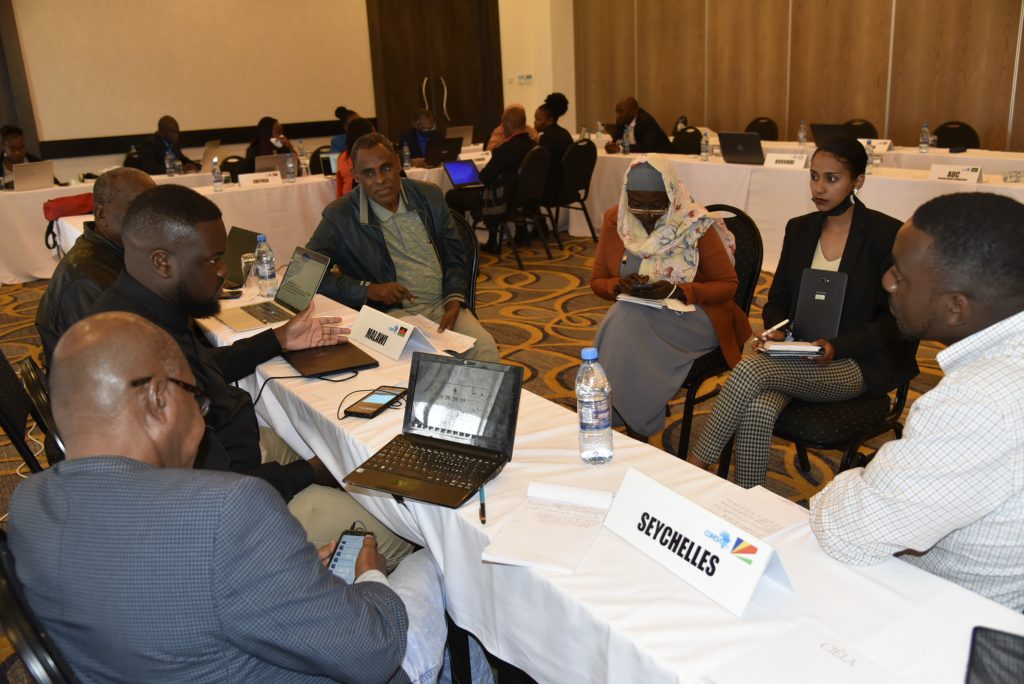
The COMESA Regional Resilience Implementation Plan and Resource Mobilization Strategy is nearing completion following final review by experts in climate change, resilience, disaster risk reduction and management, drawn from 14 Member States, Regional Economic Communities (RECs) and the African Union Commission.
At the same time, country focal points for the Nationally Determined Contributions (NDCs) from these Member States and organizations met and shared best practices in implementing the Paris Agreement on climate change and the pledges their countries made to reduce greenhouse gas emissions. NDC is a climate action plan to cut emissions and adapt to climate impacts
The two meetings ran back-to-back from 12-15 July in Lusaka, Zambia.
The financing for NDC implementation, opportunities and challenges in scaling up was one of the main subjects in focus. This meeting was part of ongoing COMESA support to the Member States to implement their NDC commitments and contribute to the attainment of the Paris Agreement goals.
Zambia’s Acting Permanent Secretary in the Ministry of Green Economy and Environment Mr Ephraim Shitima, who addressed the meeting urged the member States to review the implementation status of NDCs and recommend policies to improve it.
“The opportunities for NDC implementation outweigh the challenges, therefore we need to utilize all the available opportunities on finance, technology transfer, capacity building and to achieve the setout targets,” he said.
The meeting has further identified the regional priority issues for negotiation at the COP27 UN Climate Conference set for December 2022 in Egypt.
At the meetings, delegates raised common issues of concern which included lack of financing and the need for COMESA to support them in raising funds, build capacity, publicity, political buy-in and hasten the slow implementation of agreed targets.
Representatives from partner RECs namely the East African Community (EAC), the Intergovernmental Authority for Development (IGAD), the Indian Ocean Commission (IOC) as well as the Commonwealth, AUC and the United Nations Development Programme (UNDP) Resilience Hub addressed the meetings.
The UNDP Resilience Hub through Dr Eric Loubaud provided technical support to the development of the Regional Resilience Framework and now the implementation plan and resource mobilization strategy.
Technical Coordinator for Disaster Risk Reduction at the AUC Mr Gatkuoth Kai said the implementation of climate change frameworks and programmes requires effective coordination and collaboration with the RECs. He added that the AUC has developed overarching programmes and frameworks and ready to share experiences with the regions.
Mr Dismas Mwikila representing the EAC said his organization has developed a regional Climate Finance Mobilization and Access Strategy aimed at addressing technical capacities deficiencies, enhance the enabling environment for green private sector investment and promote innovative financing solutions
IGAD Climate Change Adaptation Officer Dr Geoffrey Sabiiti noted that the impact and risks from climate change have increased threatening livelihoods and accelerating poverty in Africa. Therefore, action to build resilience is urgent and requires joint collaboration and a multi-sectoral, multi-stakeholder approach.
Representatives from Burundi, the Democratic Republic of Congo, Comoros, Djibouti, Ethiopia, Eritrea, Eswatini, Kenya, Malawi, Seychelles, Sudan, Uganda, Zambia and Zimbabwe attended the meetings.

